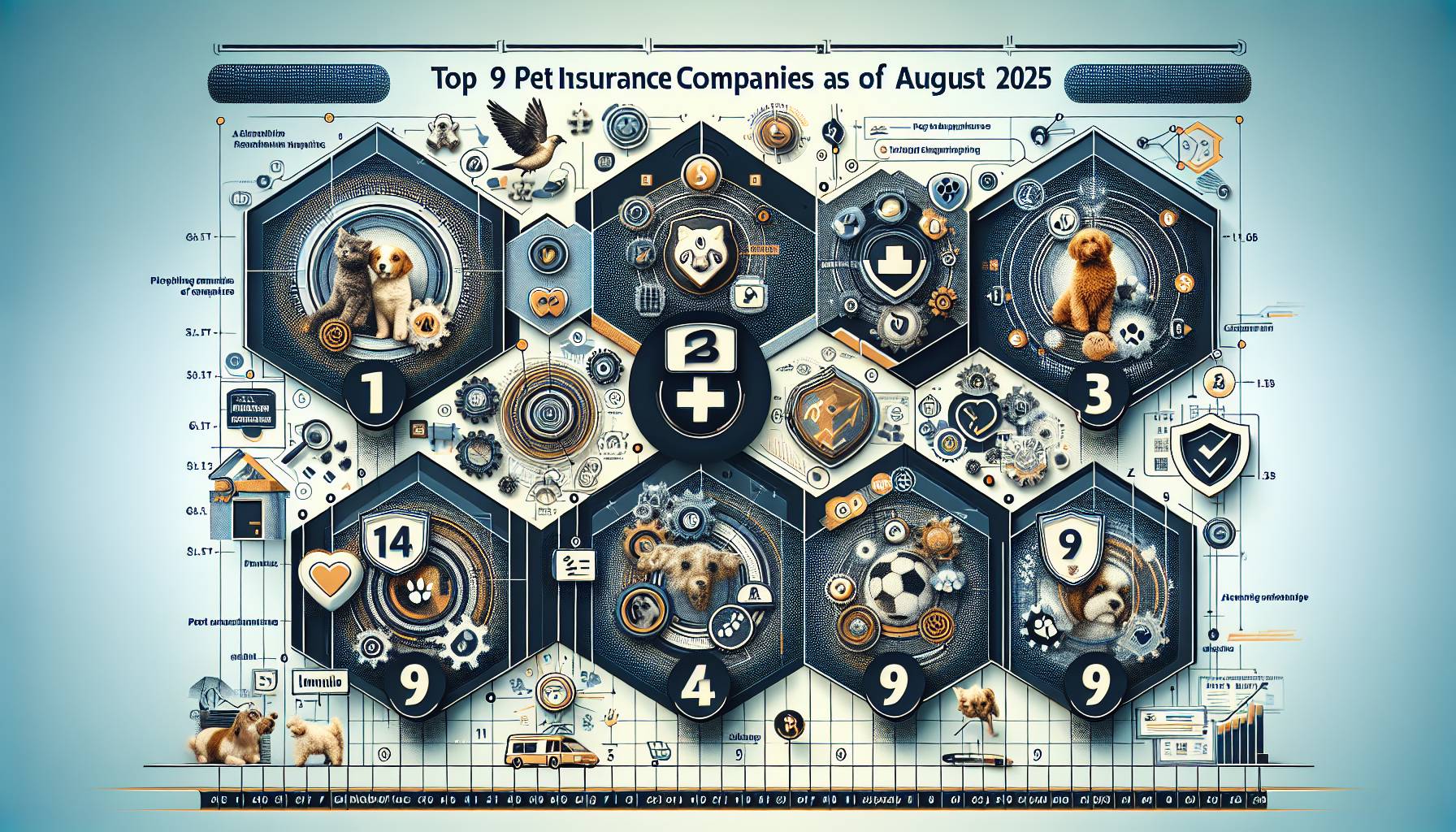
comprehending the revised regulations
Rhode Island’s updated regulations regarding pet insurance aim to enhance transparency and fairness within the sector. These laws require pet insurance providers to distinctly describe the specifications and stipulations of their policies, ensuring that pet guardians are thoroughly aware of what is included and what is excluded. This encompasses a thorough description of any exclusions, waiting durations, and the procedure for submitting claims.
Moreover, insurance companies are obligated to supply a standardized summary of benefits and coverage, facilitating easier comparisons for consumers across various policies. This summary is to include data on premium expenses, deductibles, and any co-payments or co-insurance that may be applicable. By standardizing this information, the regulations seek to minimize confusion and assist pet owners in making educated choices.
The regulations also specify that insurance providers must grant a grace period for policyholders to examine their policy and cancel without repercussions if they find it unsatisfactory. This timeframe allows pet owners to carefully evaluate the policy’s adequacy for their requirements without the pressure of immediate obligation.
Additionally, the new provisions demand that insurers uphold a transparent approach for addressing complaints and disputes. This involves providing straightforward guidelines on how policyholders can lodge a complaint and the timeframe for receiving a response. Through these enforced measures, the regulations intend to safeguard consumers and ensure that pet insurance companies function with honesty and accountability.
effects on pet owners
The rollout of these regulations is poised to offer substantial advantages to pet owners in Rhode Island. With more explicit policy specifications, pet owners will grasp better what their insurance encompasses, lowering the chances of unforeseen costs. This clarity is vital in assisting pet owners in budgeting for their pets’ healthcare needs without the anxiety of unexpected expenses.
Pet owners will also benefit from the standardized summary of benefits and coverage, which streamlines the procedure of comparing various insurance alternatives. This ease of assessment empowers pet owners to choose the policy that best aligns with their financial situation and their pets’ particular health needs. With access to comprehensive information regarding premiums, deductibles, and co-payments, pet owners are positioned to make more educated choices, potentially resulting in savings over time.
The grace period for policy examination is another noteworthy benefit for pet owners. This clause allows them to thoroughly assess the policy details and confirm that it matches their expectations and necessities. Should the policy fall short of their needs, they can cancel it without incurring penalties, providing reassurance and flexibility in their decision-making process.
Furthermore, the focus on a transparent grievance and dispute resolution mechanism guarantees that pet owners possess a clear channel to resolve any issues with their insurance provider. This facet of the regulations cultivates trust between consumers and insurers, as pet owners can feel assured that their concerns will be acknowledged and addressed promptly. Collectively, these regulations are established to foster a more consumer-centered atmosphere, ultimately improving the pet insurance experience for residents in Rhode Island.
compliance obligations for insurers
For companies offering pet insurance in Rhode Island, the new regulations outline a series of compliance obligations designed to promote transparency and accountability. Insurers are now required to adhere to stringent guidelines concerning the disclosure of policy particulars. This includes delivering a thorough breakdown of coverage options, exclusions, and any limitations that may impact policyholders. Insurers are expected to present this information in a clear and straightforward manner, ensuring that technical terminology does not confuse consumers.
Furthermore, insurance providers are mandated to establish robust systems for managing interactions with policyholders. This entails creating efficient processes for addressing claims, inquiries, and complaints. Insurers must ensure that their customer service staff is well-trained and equipped to deliver accurate information and assistance to policyholders. The regulations stipulate that insurers respond to claims and complaints within a specified period, guaranteeing that policyholders receive timely solutions to their concerns.
To further support transparency, insurers must frequently report their compliance status to relevant regulatory bodies. This encompasses submitting detailed updates on their claims processing times, the volume of complaints received, and the resolutions for those complaints. By maintaining open communication with regulators, insurers showcase their dedication to adhering to the standards established by the new regulations.
Moreover, insurers are encouraged to pursue ongoing education and training initiatives for their personnel. This ensures that employees stay informed about the latest regulatory demands and industry best practices. By investing in staff development, insurers can improve their service quality and remain compliant with the dynamic regulatory environment.
Neglecting to comply with these requirements can lead to considerable penalties for insurers, encompassing fines and possible suspension of their operational license within the state. Therefore, it is crucial for insurance companies to prioritize compliance and integrate these regulations into their operational strategies. By doing so, they not only avert legal repercussions but also build trust with their clients, nurturing a more favorable relationship with the pet-owning community in Rhode Island.
comprehending the updated pet insurance regulations
Recently, Rhode Island has implemented a series of strict regulations aimed at supervising pet insurance companies. These regulations are crafted to enhance clarity and transparency in the operations of these firms, ensuring that pet owners are well-informed about the policies they acquire.
The new regulations dictate that pet insurance providers must succinctly outline the terms and conditions of their offerings. This involves supplying comprehensive information on coverage limits, exclusions, and any applicable waiting periods. By doing so, pet owners can make more informed choices when selecting an insurance plan for their cherished animals.
Additionally, the regulations require insurance companies to provide a standardized disclosure form. This form aims to facilitate the evaluation of various insurance products, allowing pet owners to easily grasp the distinctions in coverage and pricing. The objective is to remove any confusion or ambiguity that might stem from complicated insurance language.
Another crucial element of the regulations is the stipulation for insurers to offer a clear explanation of the claims process. This involves outlining the stages involved in filing a claim, the necessary documentation, and the anticipated timeline for claim resolution. By establishing these standards, the regulations seek to minimize the frustration and uncertainty often linked with the claims process.
Furthermore, the regulations highlight the need for transparency regarding premium modifications. Insurance companies must now reveal the factors that might lead to changes in premium rates, such as the pet’s age, breed, or health status. This level of transparency ensures that pet owners are not blindsided by unexpected increases in their insurance expenditures.
These new regulations mark a significant advancement in safeguarding the interests of pet owners in Rhode Island. By fostering transparency and clarity, they empower pet owners to make informed decisions and guarantee that their furry companions receive the utmost care.
effects on pet owners in Rhode Island
The launch of these regulations is set to significantly influence pet owners throughout Rhode Island. With clearer guidelines and more transparent policies, pet owners can now navigate the frequently perplexing realm of pet insurance with greater assurance and ease. This newfound clarity is anticipated to encourage more informed decision-making, allowing pet owners to choose insurance plans that most effectively address their pets’ needs.
One of the most substantial advantages for pet owners is their enhanced ability to compare insurance policies. The standardized disclosure form mandated by the regulations simplifies the process of reviewing various plans, making it easier for pet owners to pinpoint the coverage that provides the highest value for their unique situations. This aspect is particularly significant for those with pets that may have individual health requirements or are susceptible to certain conditions.
Additionally, the focus on transparency in premium modifications allows pet owners to better anticipate alterations in their insurance costs. Grasping the elements that influence premium rates supports pet owners in managing their budgets more effectively, ensuring they can continue to care for their pets without unexpected financial strain.
The regulations also seek to ease the stress tied to filing insurance claims. By offering a straightforward explanation of the claims process, pet owners can approach this facet of their insurance with increased confidence. Understanding what to expect and what is required can considerably lessen the anxiety and frustration often associated with claims, cultivating a more favorable experience overall.
Ultimately, these regulations are designed to empower pet owners, equipping them with the tools and insights they need to make the best decisions for their pets’ health and happiness. Consequently, pet owners in Rhode Island can look forward to a more supportive and transparent insurance landscape, one that prioritizes their needs and those of their cherished animals.

